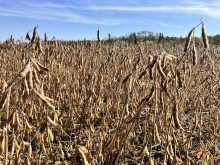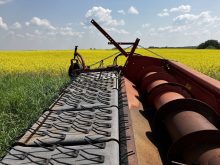MarketsFarm — Feed grain markets in Western Canada are holding relatively steady for the time being, as end-users are well covered with corn imports from the United States.
“It seems like most buyers have managed to cover themselves well into June with corn,” said Susanne Leclerc, owner of Market Master Ltd. in Edmonton, adding that “it’s a stagnant market for other grains.”
She said Canadian farmers still holding unsold barley or feed wheat had likely been hoping to see higher prices, but the corn imports have capped that possibility.
Read Also

U.S. grains: CBOT futures extend gains as cold weather hits U.S.
Chicago grain and oilseed futures rose on Friday as severe cold in U.S. and other areas of the world raised fears about damage to crops and disruptions to processing plants.
Canada has imported 2.45 million tonnes of corn from the U.S. during the 2021-22 crop-year-to-date, according to the latest data from the U.S. Department of Agriculture for the week ended April 7. That compares with only 337,000 tonnes by the same time the previous year. An additional 1.18 million tonnes of business is outstanding for future delivery, which is well above the 281,800 tonnes of outstanding sales a year ago.
With all of that corn already imported or slated for movement, buyers have little reason to price any additional feed grains right now.
Looking ahead, forward pricing for new-crop barley has been solid, although Leclerc noted that was true for most cropping options in Western Canada. As a result, producers will likely stick with their rotations for the most part, with new-crop production dependent on the weather.
While moisture conditions have improved in Manitoba and eastern Saskatchewan, much of Alberta remains very dry and Leclerc said the uncertain weather situation will be followed closely by the feed grain market going forward.
Logistics are another factor to watch, as they have been a challenge over the past year, said Leclerc. Corn is moving into Alberta by train right now, but high trucking rates and reduced availability of freight for other products continue to cause some issues.
— Phil Franz-Warkentin reports for MarketsFarm from Winnipeg.

















